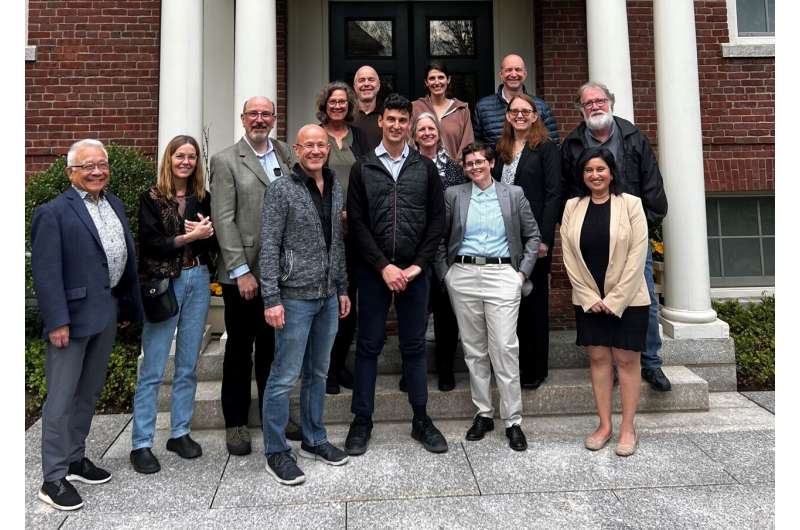This article has been reviewed according to Science X's editorial process and policies. Editors have highlighted the following attributes while ensuring the content's credibility:
fact-checked
peer-reviewed publication
trusted source
proofread
Fostering creativity in the scientific research process

How can creativity be implemented in the scientific research process from the outset? By equipping students with creativity tools during their training. This is the message of a prominent group of researchers, which they have now published as a Letter in the journal Science.
The lead authors are Professor Dr. Martin Lercher, bioinformatician at Heinrich Heine University Düsseldorf (HHU), and Professor Dr. Itai Yanai from New York University. They are both advocates of the importance and encouragement of creativity in science.
Creativity should be taught in scientific study programs—this is the core message of the authors, which they developed at an "Exploratory Seminar" at the Radcliffe Institute for Advanced Study at Harvard University. In addition to the tools required for research, students should also learn creative processes, which are often the key factor in making truly ground-breaking new discoveries.
Professor Lercher, corresponding author alongside Professor Yanai, says, "It is possible to teach, nurture and encourage creativity. The key teachable aspects include openness to new ideas, the ability to identify novel questions and the generation of many diverse ideas. Analogies and metaphors can help here. It is also important to seek connections between disciplines and above all to learn to accept contradictions."
Professor Yanai says, "Demystifying the scientific creative process can make science more accessible to many young people. And this in turn promotes researchers' confidence in their self-efficacy and identity as scientists."
Various universities in the U.S., HHU in Germany and the European Molecular Biology Organization (EMBO) have begun to integrate creativity into their curricula. Lercher states. "These organizations can serve as models for others. We are confident that science creativity training, which addresses the complexity of modern challenges, will improve the accessibility, effectiveness and quality of science."
Professor Itai Yanai and Professor Martin Lercher are focusing on the creative side of scientific progress, drawing on a concept developed by the Nobel Prize winner François Jacob. "Day science" refers to modern science as a systematic, well-planned process guided by hypotheses developed in advance, while "night science" is the non-systematic, creative part of science, namely free thinking and the often intuitive exploration of ideas. And it is this creative process in particular that leads to qualitative scientific advances.
More information: Itai Yanai et al, Teach creativity in science higher education, Science (2024). DOI: 10.1126/science.adr4539
Journal information: Science
Provided by Heinrich-Heine University Duesseldorf





















